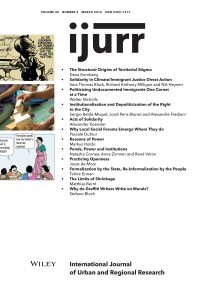Social forums are, quintessentially, a transnationally mobile institutional enterprise. Since the first World Social Forum in Porto Alegre, Brazil, in 2001, thousands of local initiatives have emerged all over the world. Yet we know very little about the diffusion processes involved. This article examines nine local social forums (LSFs) in two societies (France and Québec) in order to understand how social forums (SFs) spread throughout or within each territory. Aside from the usual factors, such as the presence or absence of an initiator, favorable political opportunity structure and access to resources, I consider the geography of appropriation, with an emphasis on the dimensions of place (where the forums are organized), and scales of action built by activists. First, I show that, as proposed in the social movement literature, SFs spread from the global South to the global North as a direct result of activists willing to reproduce within their localities that which they have seen and experienced on a larger scale. Political opportunity structures and access to resources appear relevant to understanding the longevity of LSFs and their capacity to be more or less encompassing experiences. But beyond these ‘usual suspects’, the geographical appropriation of social forums is an important consideration that helps us understand the specific diffusion of LSFs in each national territory. In Québec, the region is perceived as a ‘given’ by activists and becomes the relevant scale of collective action, while in France, scale building is at stake and LSFs are used as a tool to escape the centralization of the main national organization in the field of global protest.

